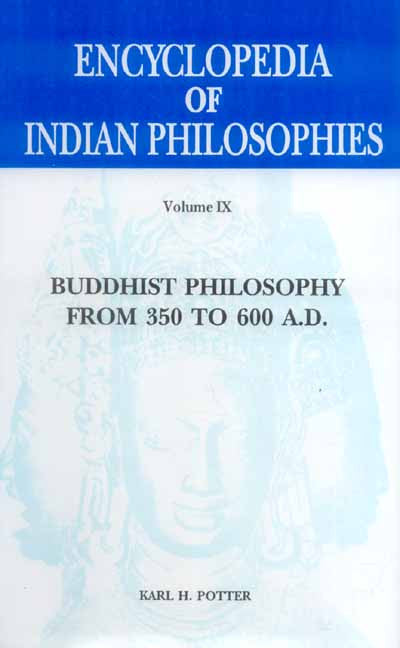Encyclopedia of Indian Philosophies (Vol. 9): Buddhist Philosophy from 350 to 600 A.D.
Encyclopedia of Indian Philosophies (Vol. 9): Buddhist Philosophy from 350 to 600 A.D. is backordered and will ship as soon as it is back in stock.
Couldn't load pickup availability
This, the third Volume in this Encyclopedia to deal with Buddhist philosophy, takes the reader from the middle of the sixth. Many of the authors and texts treated here are not well known to the casual student of Buddhism. The most important author is clearly Dignaga, who is almost entirely responsible for turning Indian Buddhism toward an exhaustive analysis of epistemic considerations and in particular of inferential reasoning. But other author whose works are summarized here deserve to be better known, in particular the rival Yogacara commentors Buddhapalita and Bhavya, the latter of whome in particular introduces for the first time into Buddhism contrasts between the viewpoint of his particular brand of Buddhism and all the other system of contemporary India, and not just the Buddhists.
Contents
Preface, Abbreviations, PART ONE: Introduction, Historical Overview, Abhidharma Developments, Epistemology, Logic and Language, PART TWO: Summaries of Works, Endnotes, Glossary, Index.
Review(s)
"......valuable survey of an important period in the development of Buddhist thought.....has a helpful glossary doubling as Index." --------------Journal of Royal Asiatic Society Vol: 15, No. 2, July 2005.
"This work is bound to be received as a very use
About the Author(s)
Karl H. Potter is professor of Philosophy and South Asian Studies at the University of Washington is Seattle, and is General Editor of the Encyclopedia of Indian Philosophies. Series containing 28 volumes.
-
Pages
-
Edition
-
Size
-
Condition
-
Language
-
Weight (kg)
-
Publication Year
-
Country of Origin
-
Territorial Rights
-
Reading Age
-
HSN Code
-
Publisher




